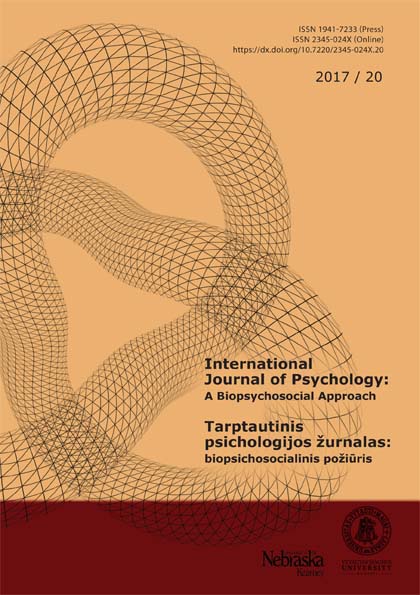Emotional Expressivity of Alcohol Dependent Patients in Different Stages of Motivation to Refuse Alcohol
Emotional Expressivity of Alcohol Dependent Patients in Different Stages of Motivation to Refuse Alcohol
Author(s): Justina Slavinskienė , Kristina Žardeckaitė-MatulaitienėSubject(s): Psychology, Behaviorism, Substance abuse and addiction
Published by: Vytauto Didžiojo Universitetas
Keywords: Emotional expressivity; Motivation to refuse alcohol; Alcohol dependency;
Summary/Abstract: Objective. The aim of this study is to evaluate differences in emotional expressivity according to the motivation to refuse alcohol in a sample of alcohol dependent patients. Methods. The study sample consists of 142 alcohol-dependent patients (96 males and 46 females) undergoing treatment in Lithuania, Kaunas centre for addictive disorders. Emotional expressivity, motivation to refuse alcohol and alcohol dependency are measured by Lithuanian versions of The Stages of Change Readiness and Treatment Eagerness Scale (SOCRATES), Five Expressivity Facet Scale and AUDIT test. Results. Highly motivated alcohol-dependent males express more positive and negative emotions; also, they have significantly higher expressive confidence and higher emotional impulse intensity than those alcohol-dependent males with low motivation to refuse alcohol. Highly motivated alcohol-dependent females have higher emotional impulse intensity and they express more positive emotions comparing to low motivated females. Conclusions. Increased motivation to refuse alcohol is significantly related to some positive aspects of emotional expressivity. Highly motivated alcohol-dependent patients (both males and females) show higher emotional impulse intensity and higher expression of positive emotions. So, applied psychosocial interventions make significant changes in emotional expressivity and this perhaps is significant for the development of new perception of alcohol dependency and for making behavioural changes.
Journal: Tarptautinis psichologijos žurnalas: biopsichosocialinis požiūris
- Issue Year: 2017
- Issue No: 20
- Page Range: 9-22
- Page Count: 14
- Language: English

